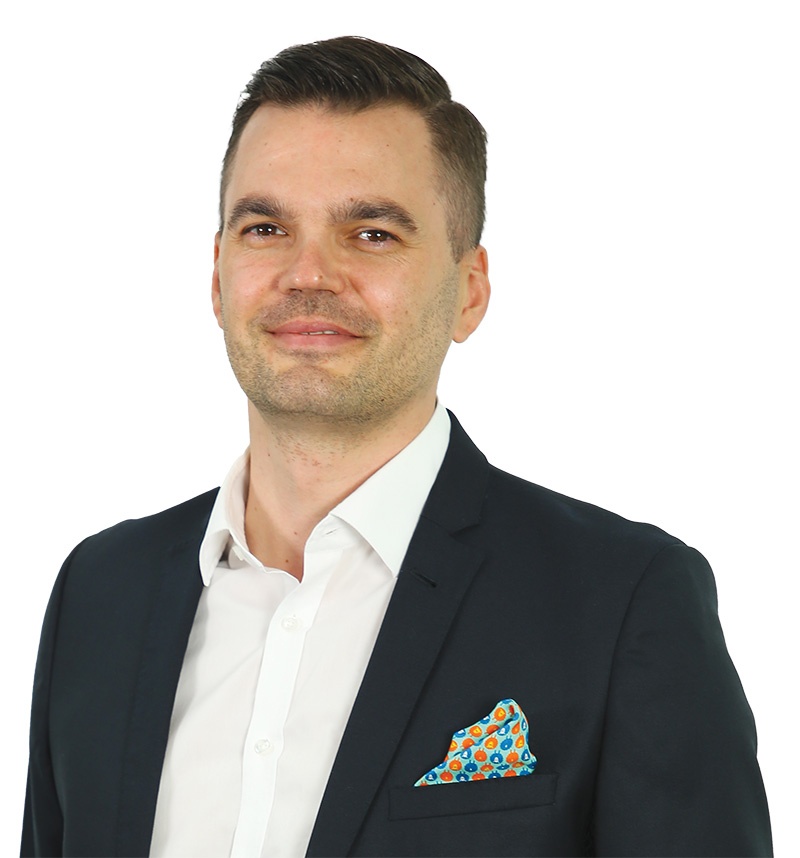German know-how to find Vietnam’s own path to sustainability
Germany has committed to supporting Vietnam in the implementation of its sustainable development model and environmental protection. What will be the focuses of this cooperation?
 |
| Lukas Schoeneck, a board member of the German Business Association |
As a long-term partner, Germany has committed to supporting Vietnam with around $170 million to develop a model for sustainable development and environmental protection. About $135 million of this will go towards developing a sustainable growth model and the rest will be used to support biodiversity and climate projects in Vietnam in the next two years. The focus area will be climate protection including climate change adaptation, biodiversity, and economic integration. This is a big chance for Vietnam to access and apply new technologies, along with lessons Germany has learnt through experiences.
What does Vietnam need to encourage businesses to develop sustainably?
Moving from a linear take-make-dispose model to a circular economy naturally implies various changes like prolonging material lifespan, reducing waste and emissions, and reestablishing the ecosystem. Change will certainly require investment and a change of mindsets within the industry and customer behaviour. However, in the long run, there will be clear benefits for the economy and Vietnam’s natural resources.
First of all, the legal framework needs to be further modernised and adapted to set the right (positive) incentives to private and state-owned businesses. Then, the planning and approval of green investments need to be brought up to speed, after which the private business will need to see a reliable and consistent decision-making process when it comes to long-term investments.
The private consumer also has a very important position in this process. With every purchasing decision, each of us sends signals to the market. If the consumer leans towards green and sustainable products, the market will have to adapt. We have seen this development in Germany as well, when it was obvious that private business outpaced the German government with the implementation of electric cars, for example.
What have German businesses in Vietnam done to contribute to sustainable development in the country?
I believe that private businesses can develop a strong long-term drive for sustainable development, given the right economic and legal framework and the right incentives. There are various German companies that are active in the Vietnamese market in different roles, some as investors and others providing sustainable solutions.
thyssenkrupp, for example, provides green solutions to decarbonise the cement industry based on experiences from Europe and other Western markets. At the same time, the group is in constant exchange with the Ministry of Construction on developing the right technical approach for the market.
Knowing that Vietnam is one of the biggest cement producers in the world, there is tremendous potential for CO2 reduction to reach national targets in 2030 and 2050.
I find the Ecoligo approach also very exciting. This German company focuses on crowdfunding projects that follow both the fight for more renewables and a return on investment. A further positive example is Aone with its water treatment facility in the Mekong Delta province of Long An. There are many more examples of how German companies can provide green technologies and investments to support sustainable development in Vietnam.
What lessons can Vietnam learn from Germany about sustainable development, circular economy, and the development of renewable energy in the 4.0 era?
Germany went through a long transition over decades and tried various approaches like positive incentives in the form of subsidies, tax exemptions, or strict regulations.To be fair, environmental protection and sustainability were not such a focus in the ‘70s or ‘80s in Germany and many people forget that when talking about developing countries and their responsibility towards the environment. Germany had more time to develop in the right direction.
However, I am sure Vietnam can internalise some of the positive examples from Germany – but on the whole, it needs to find its own way. Vietnam has to find the right balance between economic growth and environmental protection.
I also believe that there are a lot of opportunities in renewables, and with the right cross-industrial approach, there are very interesting opportunities in the world market. Green hydrogen, for instance, is a very interesting market for Vietnam. Its long coastline is an excellent basis for the water electrolysis process to produce green hydrogen.
The application of Industry 4.0 principles is a chance for Vietnam to overcome some of the current hurdles in the national grid and renewables. Technical and smart solutions will help increase transparency in the energy system, providing flexibility in generation and increasing energy efficiency.
What the stars mean:
★ Poor ★ ★ Promising ★★★ Good ★★★★ Very good ★★★★★ Exceptional
Related Contents
Latest News
More News
- $100 million initiative launched to protect forests and boost rural incomes (January 30, 2026 | 15:18)
- Trung Nam-Sideros River consortium wins bid for LNG venture (January 30, 2026 | 11:16)
- Vietnam moves towards market-based fuel management with E10 rollout (January 30, 2026 | 11:10)
- Envision Energy, REE Group partner on 128MW wind projects (January 30, 2026 | 10:58)
- Vingroup consults on carbon credits for electric vehicle charging network (January 28, 2026 | 11:04)
- Bac Ai Pumped Storage Hydropower Plant to enter peak construction phase (January 27, 2026 | 08:00)
- ASEAN could scale up sustainable aviation fuel by 2050 (January 24, 2026 | 10:19)
- 64,000 hectares of sea allocated for offshore wind surveys (January 22, 2026 | 20:23)
- EVN secures financing for Quang Trach II LNG power plant (January 17, 2026 | 15:55)
- PC1 teams up with DENZAI on regional wind projects (January 16, 2026 | 21:18)

 Tag:
Tag:




















 Mobile Version
Mobile Version